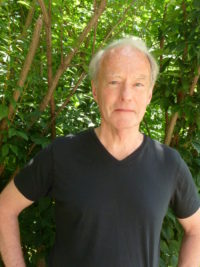King's True Story
Very few Americans are aware of the truth behind the assassination of Dr. Martin Luther King, Jr., the United States' celebrated civil rights icon. Few books have been written about it, unlike other significant assassinations, especially JFK's. For more than fifty years there has been a media blackout supported by government disinformation to hide the truth. And few people, in a massive act of self-deception, have chosen to question the official explanation, choosing, rather, to embrace a mythic fabrication intended to sugarcoat the bitter fruit that has resulted from the murder of one man capable of leading a mass movement for transformative change in the United States. Today we are eating the fruit of our denial as racial discrimination, poverty, and police violence garner the headlines.
After more than a decade as America's best-known and most respected civil rights leader, by 1968 Reverend Martin Luther King, Jr. had increasingly focused on poverty issues and publicly declared his intense opposition to the U.S. war against Vietnam in a famous speech - "Beyond Vietnam: The Time To Break the Silence" - at New York's Riverside Church on April 4, 1967, one year to the day before he was assassinated. [2]
Having won the Nobel Peace Prize in 1964, he emerged in the mid-1960s as an international figure, whose opinions on human and economic rights and peaceful coexistence were influential world-wide. Shortly before his assassination, he was organizing the Poor People's Campaign that would involve hundreds of thousands of Americans who would encamp in Washington, D.C to demand the end to economic inequality, racism, and war.At the same time, Reverend King was hated by an array of racists throughout America, especially in the American South. Among his greatest declared enemies was FBI Director J. Edgar Hoover, who seemed convinced that King's backers were Communists out to damage America's interests. In the late 1960s, the FBI's COINTELPRO program created a network of informants and agent provocateurs to undermine the civil rights and anti-war movements with a special focus on King. [3]
After King's "I Have a Dream" speech in 1963, William Sullivan, the head of the FBI's domestic intelligence division, wrote in a post-speech memo:
Personally, I believe in the light of King's powerful, demagogic speech that he stands head and shoulders over all other Negro leaders put together when it comes to influencing great masses. We must mark him now, if we have not done so before, as the most dangerous Negro of the future in this Nation from the standpoint of communism, the Negro and national security. [4]
The FBI, after extensive eavesdropping on King, subsequently sent him an anonymous letter urging him to kill himself or else his extramarital sex life would be exposed. The FBI's and its Director J Edgar Hoover's hatred for King was so great that nothing was too low for them. [5]
This history is common knowledge as reported in the Washington Post, The New York Times, etc.
During the Senate Church Committee hearings in the mid-1970s, a parallel group within the CIA, code-named CHAOS, was uncovered. Despite its charter disallowing it from operating inside the United States, the CIA similarly used illegal means to disrupt the civil rights and anti-war movements.
Because MLK, in his Riverside Church speech, spoke clearly to what he identified there as "the greatest purveyor of violence in the world today - my own government" and continued to relentlessly confront his own government on its criminal war against Vietnam, he was universally condemned by the mass media and the government that later - once he was long and safely dead and no longer a threat - praised him to the heavens. This has continued to the present day of historical amnesia.
Today Martin Luther King's birthday is celebrated with a national holiday, but his death day disappears down the memory hole. Across the country - in response to the King Holiday and Service Act passed by Congress and signed by President Bill Clinton in 1994 - people are encouraged to make the day one of service (from Latin, servus = slave). Etymological irony aside, such service does not include King's commitment to protesting a decadent system of racial and economic injustice or non-violently resisting the warfare state that is the United States. Government-sponsored service is cultural neo-liberalism at its finest.
The word service is a loaded word; it has become a smiley face and vogue word over the past thirty-five years. Its use for MLK Day is clear: individuals are encouraged to volunteer for activities such as tutoring children, painting senior centers, delivering meals to the elderly, etc., activities that are good in themselves but far less good when used to conceal an American prophet's message. After all, Martin Luther King's work was not volunteering at the local food pantry with Oprah Winfrey cheering him on.
But service without truth is slavery. It is propaganda aimed at convincing decent people into thinking that they are serving the essence of MLK's message while they are following a message of misdirection.
Educating people about who killed King, and why, and why it matters today, is the greatest service we can render to his memory.
What exactly is the relationship between King's saying that "the greatest purveyor of violence in the world today - my own government" and his murder?
Let's look at the facts.
(Note: You can view every article as one long page if you sign up as an Advocate Member, or higher).





